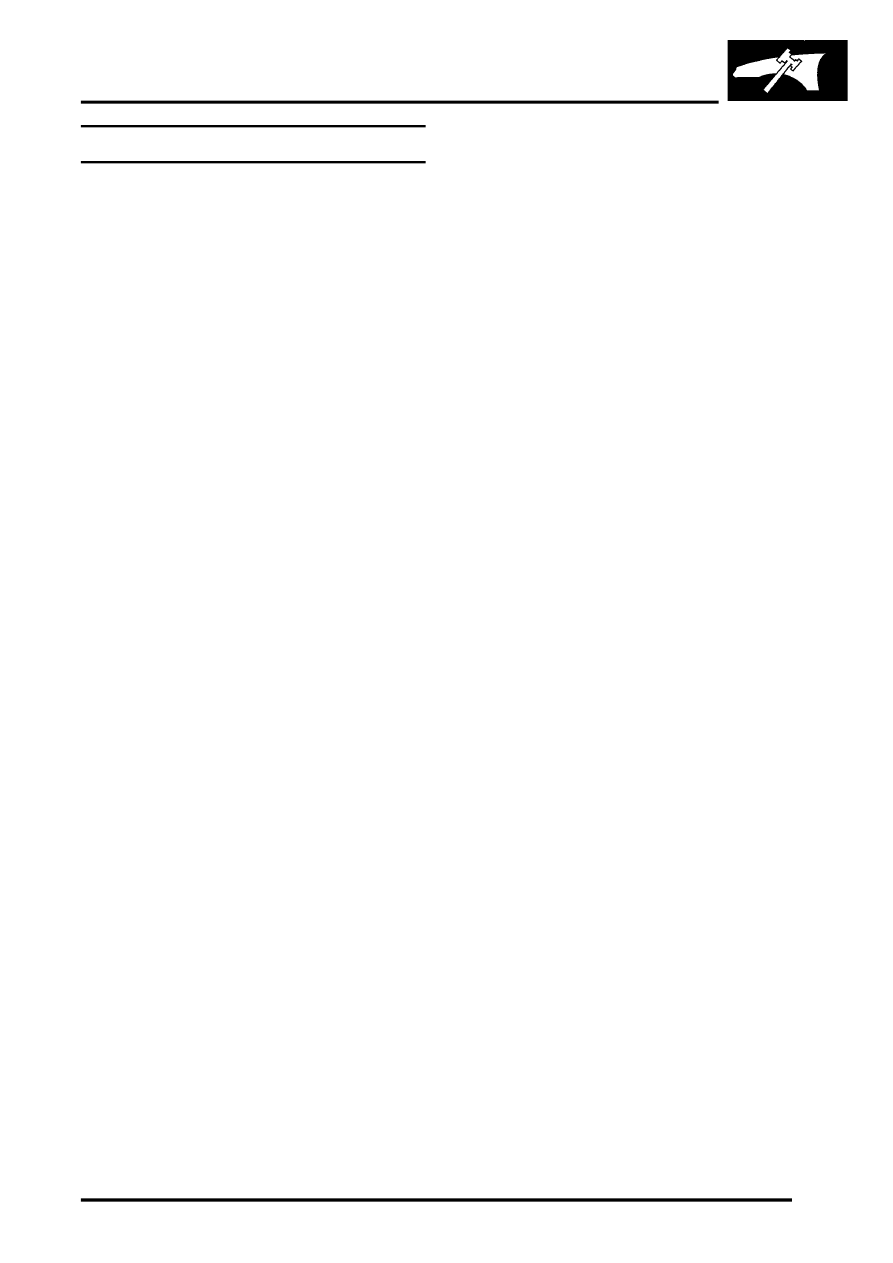Freelander Service Procedures

PAINTING
PANEL PROCEDURES
77-5-1
PAINTING
PANEL PROCEDURES
Panel Preparation
General
Replacement panels are supplied with a cathodic primer coating as part of the panel protection and in compliance
with the vehicle's Corrosion Warranty, where applicable. DO NOT remove the primer before paint refinishing. In
the event of localized surface damage or imperfections, ensure that only the minimum of primer is removed
during rectification work for effective repair.
Rectify damage as far as possible by panel beating or straightening. To remove corrosion or paint runs on outer
surfaces, abrade the primer coat in the affected area as necessary using the following procedure:
1 Clean the panel using a solvent wipe.
2 Treat exposed areas of metal with an etch phosphate process.
3 Re-treat the affected area using either a separate acid-etch primer and two-pack surfacer, or an integrated etch
primer/filler.
Panel Preparation
The following procedures should be applied when repairing panels.
Welded panels
1 Remove primer from the immediate vicinity of new and existing panel flanges, cleaning to bright metal finish.
2 On joints to be spot welded, apply weld-through zinc rich primer to joint faces of both flanges. Make spot welds
while primer is still wet or according to the manufacturer's instructions.
3 Dress accessible weld joints.
4 Clean panel using solvent wipe.
5 Treat bare metal with an etch phosphate process.
6 Re-treat repaired areas.
Sectioned panels
When replacing part or sectioned panels, the basic procedure is the same as for welded panels described above, with
the following variations:
1 Remove primer from both new and existing joint faces, cleaning to a bright metal finish.
2 Where an overlap joint with the existing panel is to be spot welded, apply weld-through, zinc rich primer to both
joint faces and spot weld while the primer is still wet, or according to the manufacturer's instructions.
3 MIG weld butt joints where applicable.
4 Clean the panel with a solvent wipe.
5 Treat bare metal areas using an etch phosphate process.
6 Re-prime affected areas as necessary as for rectifying transit damage.
7 Treat the inner faces of lap or butt joints with a suitable cavity wax.
Clinched panels
1 Abrade primer on new and existing panel joint faces, and clean using a solvent wipe.
2 Apply metal-to-metal adhesive where applicable.
3 Where joints are to be spot welded, apply suitable weld-through, zinc rich primer to weld areas.
4 Where joints are to be MIG, arc or gas welded, apply zinc rich primer in adjacent areas but leave the welded
area untreated.
5 To retain the panel while clinching the flanges, tack spot weld or plug weld as appropriate.
6 Clean the panel with a solvent wipe.
7 Treat bare metal areas with a suitable etch phosphate process.
8 Re-prime affected areas as necessary as for rectifying transit damage.
PAINT PROCEDURES
